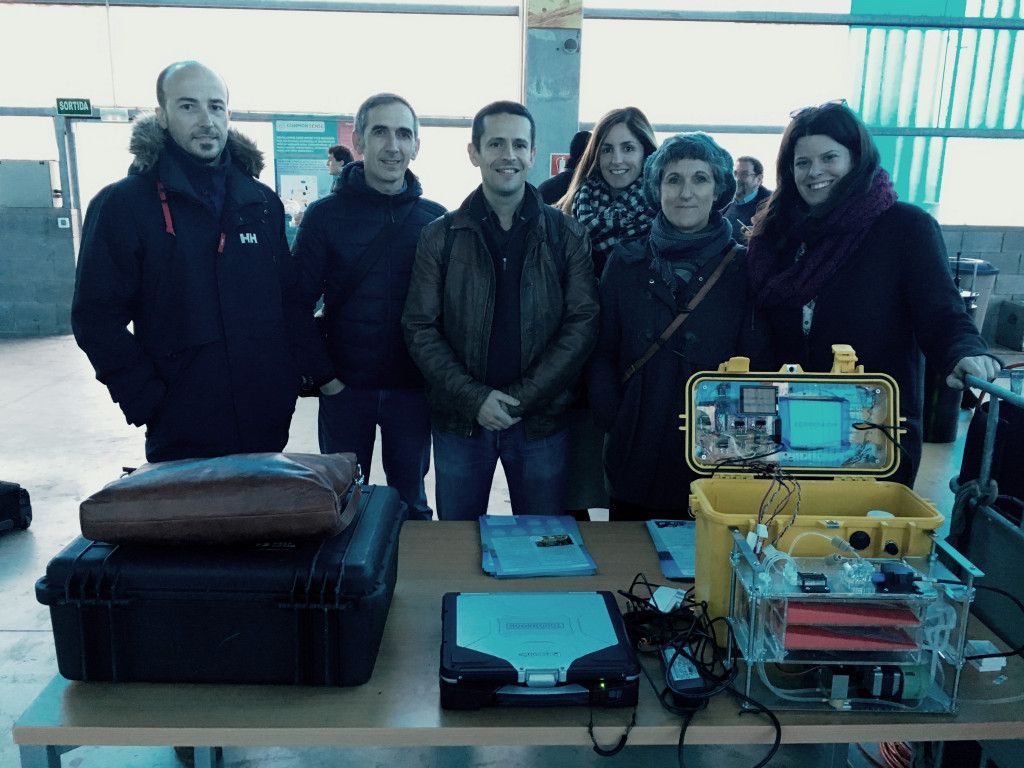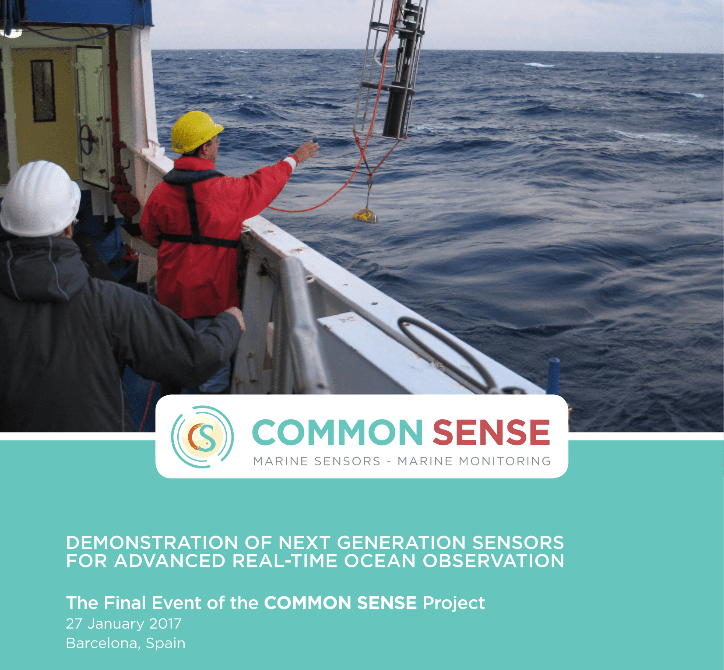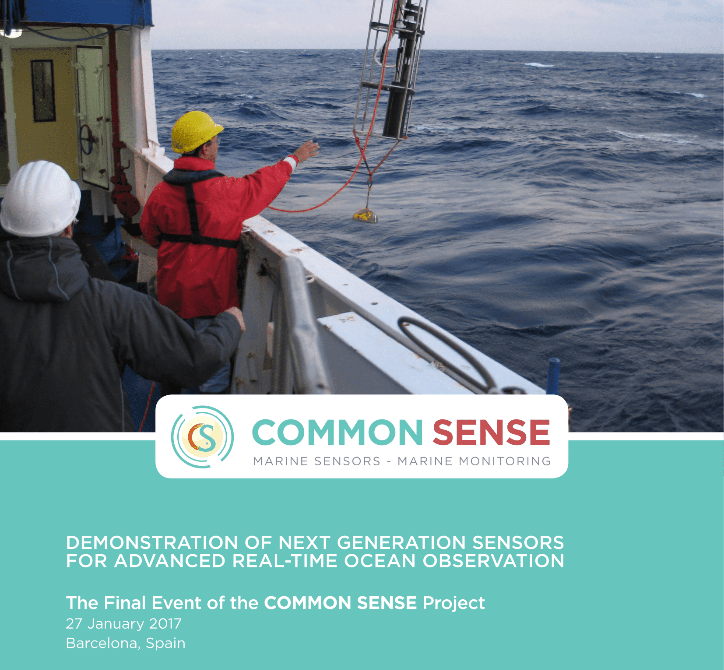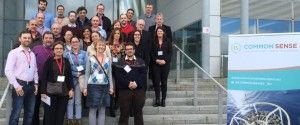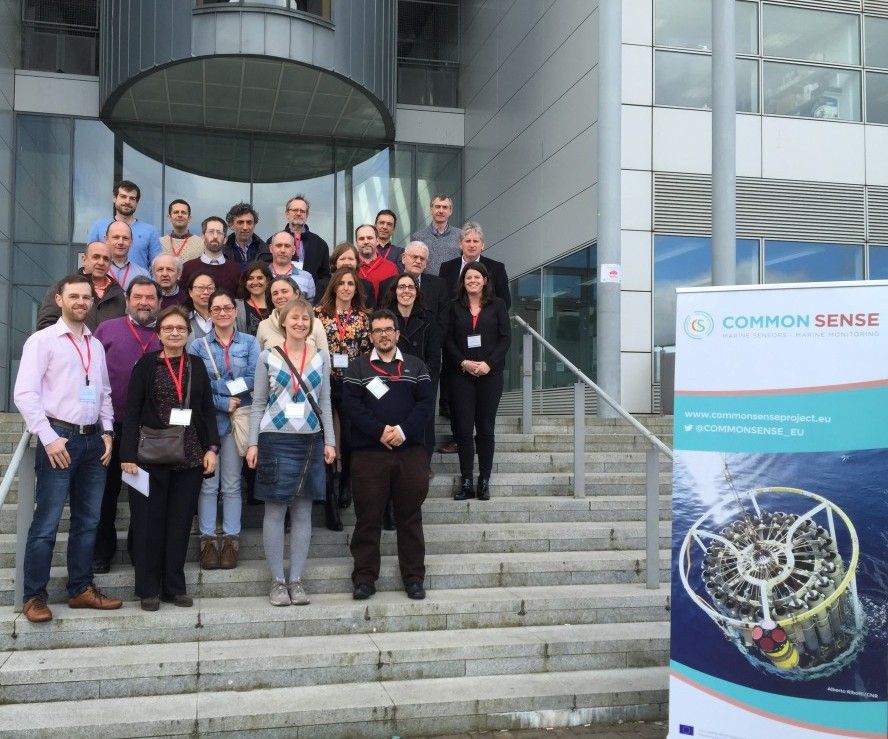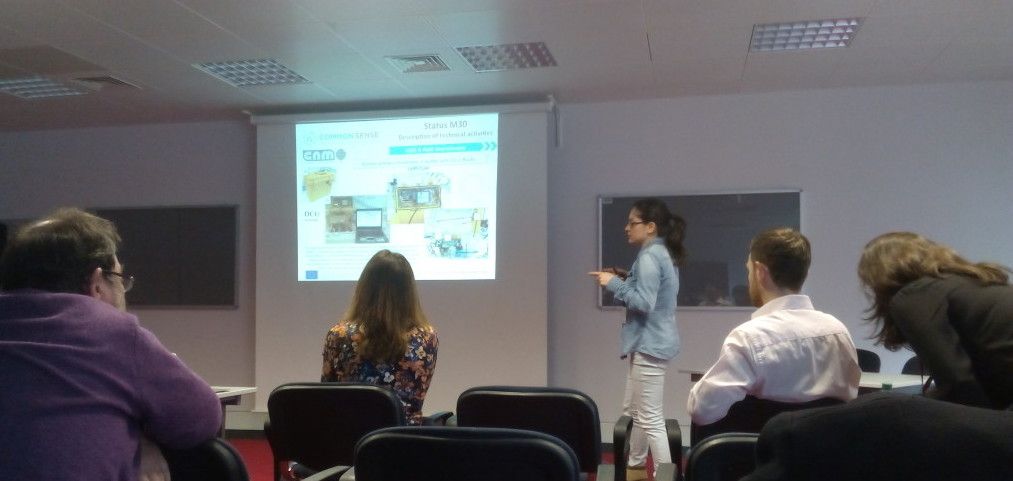Heavy metals sensor platform developed during the COMMON SENSE project
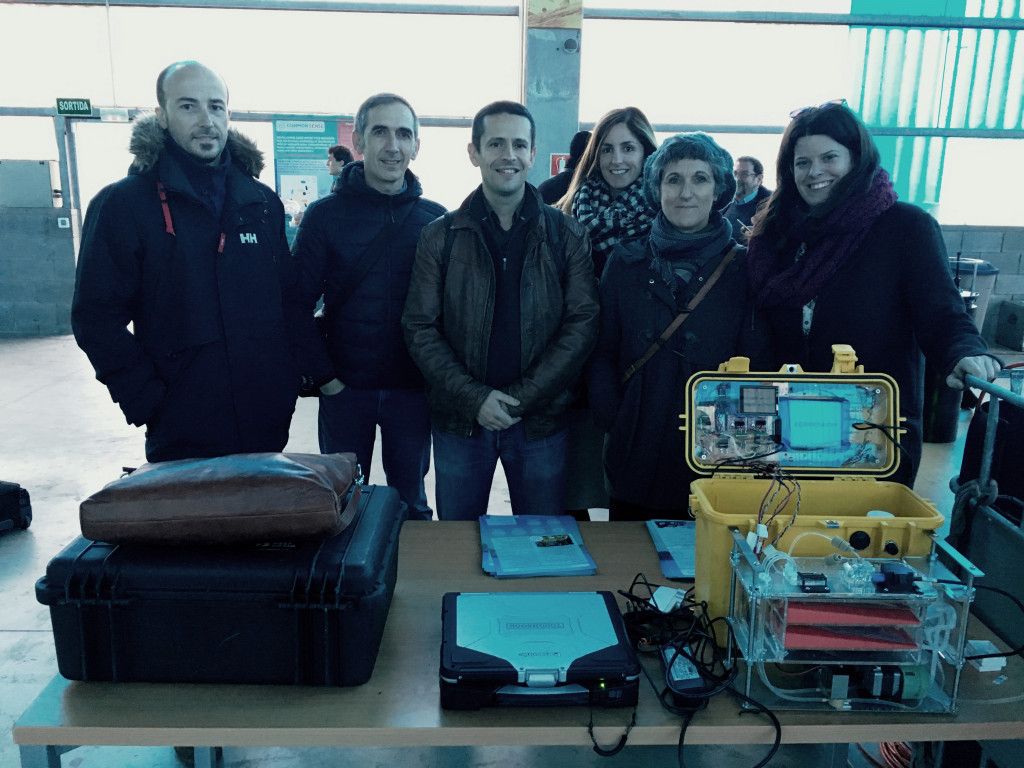
A sensor platform to detect heavy metals has been developed within the COMMON SENSE project and presented during its final event, last Friday 27th January.
The partners that participated in the development of this sensor platform are Dublin City University (DCU), DropSens, National Center of Microelectronics (CNM-IMB) (CSIC), and the Nanoparticles and Nanocomposites Group (NN) at ICMAB (CSIC).
Highlights of the heavy metals sensor platform (photo):
- Autonomous system for the detection of cadmium (Cd2+), lead (Pb2+), copper (Cu2+) and mercury (Hg2+) ions at trace level.
- Modular design.
- Adjustable flow control for heavy metals detection.
- No pre-treatment of samples necessary.
- No pre-concentraton of samples necessary. The sensor directly operates on-site and pre-concentrates the heavy metals on the surface of the electrode.
- Complete mixing of the sample and buffer in a microfluidic chip.
- Storage container for reagent waste designed for easy on-site maintenance.
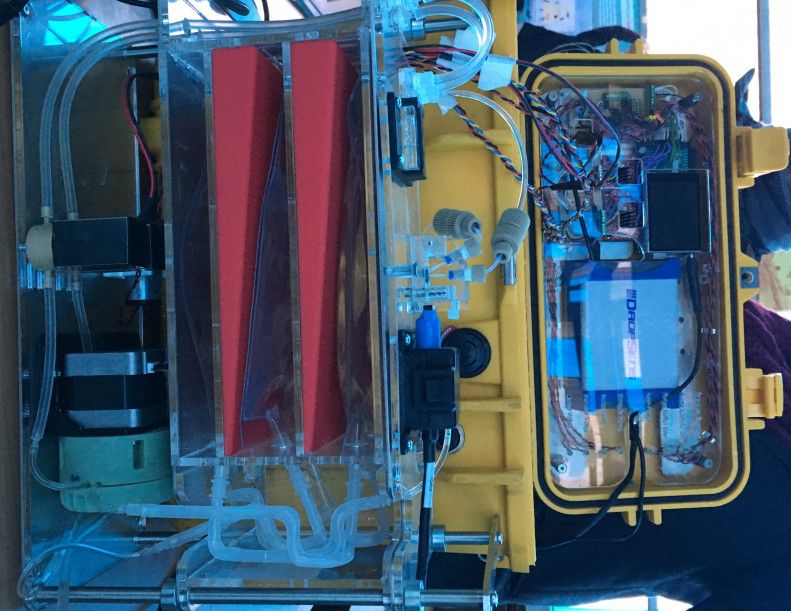
Apart from this sensor, in which the NN Group has participated, the COMMON SENSE project has developed prototypes of other in situ next generation marine monitoring sensors:
- Microplastics analyser
- Underwater noise sensor
- Eutrophication sensor
- Autonomous pH and pCO2 sensors
- Innovative temperature and pressure sensors
For more information, please visit the COMMON SENSE project website or contact the leader of the Dissemination and Knowledge Management Work Package, Cliona Ní Cheallachain (cliona@aquatt.ie).
The COMMON SENSE project has received funding from the European Union’s Seventh Framework Program (Ocean 2013-2) under grant agreement no 614155.

